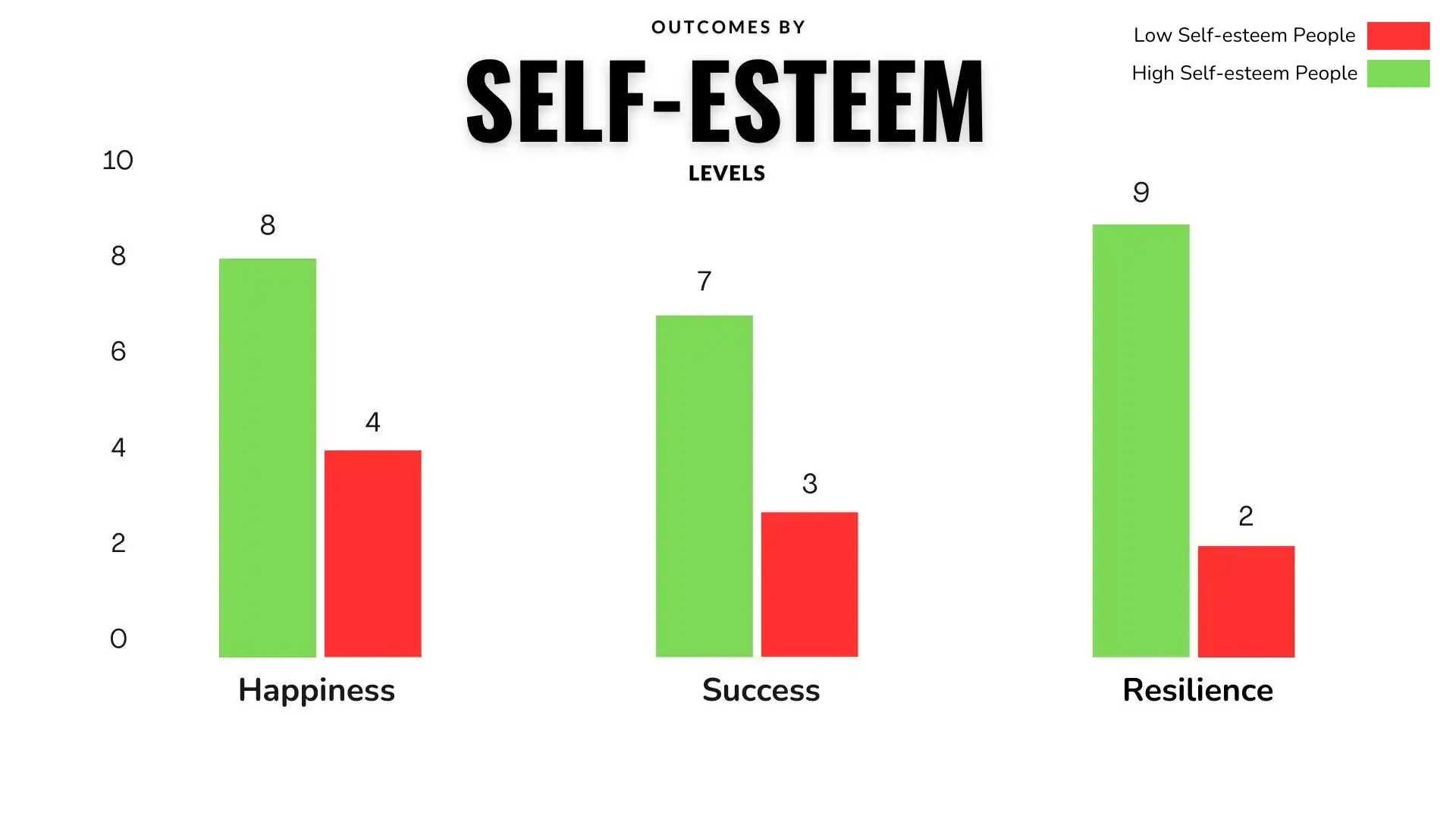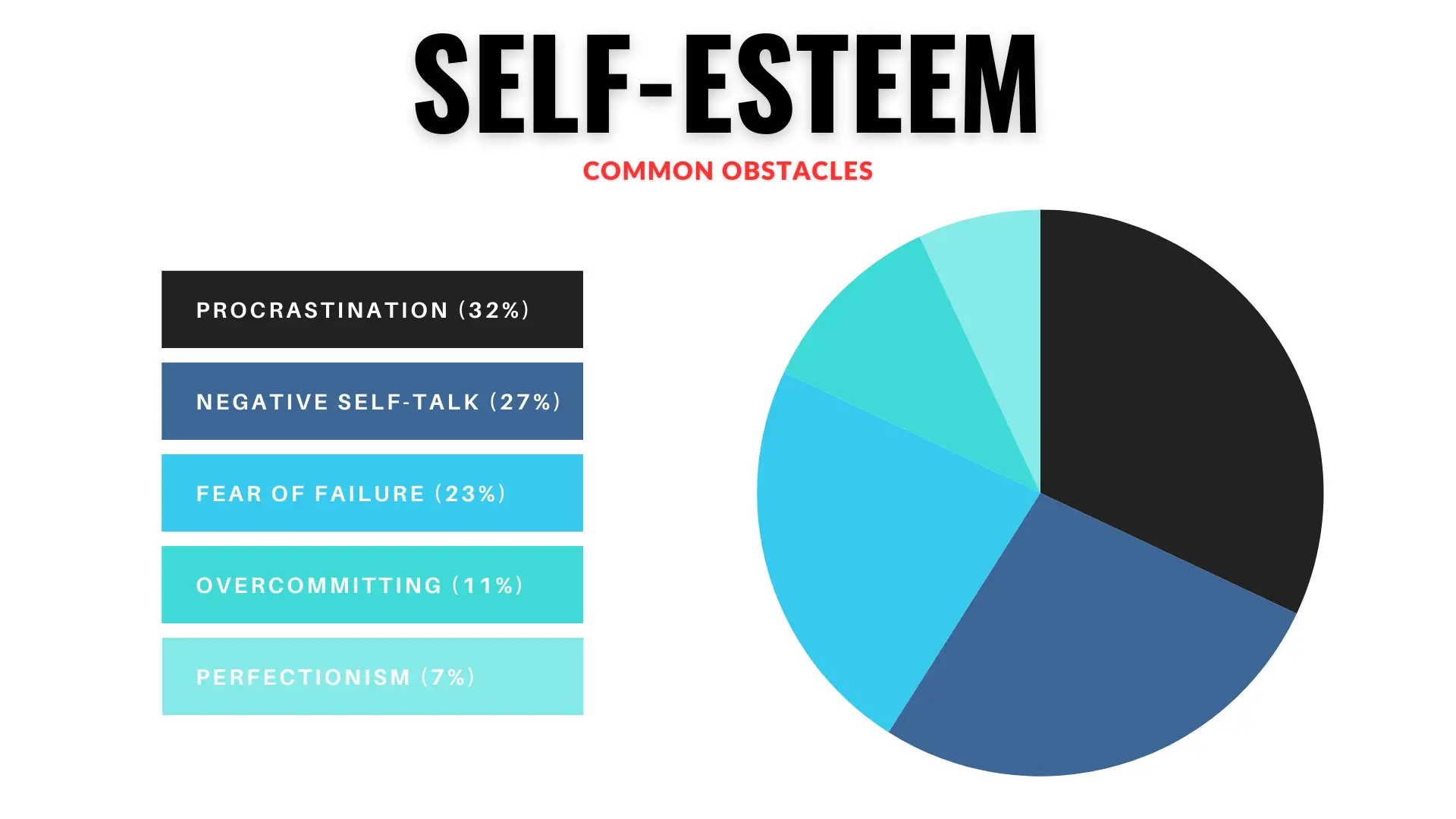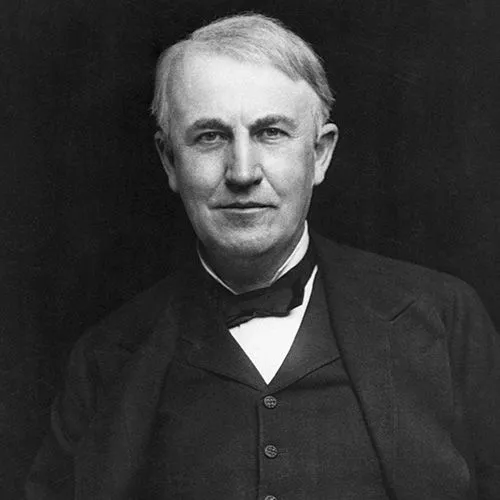Do you ever feel like you’re not good enough like negative thoughts and self-doubt drag you down?
Low self-esteem can hold you back from achieving your dreams and living a fulfilling life. It’s time to break those limiting beliefs.
SMART goals are your key to boosting your self-esteem. These specific, measurable, achievable, relevant, and time-bound goals give you a roadmap for creating positive change and building your confidence from the ground up.
Importance of The SMART Goals
Imagine you want to take a road trip but have no idea where you’re going. You might wander aimlessly, get lost, and feel frustrated. SMART goals are like the GPS for your self-esteem journey.
They provide a clear direction, help you track progress, and make sure you reach your desired destination of greater self-confidence. Let’s explore why SMART goals are so powerful.
Benefits of SMART Goals
SMART goals are more than just a fancy acronym. They offer a host of advantages when it comes to boosting self-esteem and improving your life overall:
- Clarity: SMART goals help you define exactly what you want to achieve, clearing away doubts and self-limiting beliefs.
- Motivation: They provide a tangible target to work towards, giving you that extra push to keep going when things get tough.
- Trackable Progress: Seeing how far you’ve come is incredibly empowering and fuels your self-belief.
- Accountability: SMART goals hold you accountable for your actions, encouraging you to take consistent steps toward your desired outcome.
- Increased Success: With a well-defined plan, you’re more likely to achieve your goals, leading to a greater sense of accomplishment and self-worth.
"Too many people overvalue what they are not and undervalue what they are."
 Malcolm S. Forbes
Malcolm S. Forbes How SMART Goals Affect Self-Esteem
The connection between SMART goals and self-esteem is a powerful one. Here’s how they work together:
- Sense of Accomplishment: Achieving goals, even small ones, releases a rush of positive feelings and builds a sense of “I can do this!”
- Proof of Capability: Every completed goal is evidence that you’re capable of more than you realized, chipping away at negative self-beliefs.
- Increased Self-Respect: By following through on your goals, you demonstrate self-respect and reinforce that you’re worthy of your own commitment.
- Positive Focus: SMART goals shift your attention away from perceived flaws and toward your strengths and abilities.
- Skill Development: When you learn and grow through goal-setting, you cultivate a powerful sense of competence and self-assurance.

15 Most Effective SMART Goals for Self-Esteem
Now that you understand the power of SMART goals, it’s time to put them into action!
Below, you’ll find 15 highly effective goals designed to boost your self-esteem. Remember, these are just starting points – feel free to adapt and personalize them to fit your specific needs and desires.
1. Daily Affirmation Practice
Positive affirmations directly challenge negative self-talk and help you reprogram your mindset. By consistently replacing limiting beliefs with positive statements, you gradually begin to believe in your own potential and worth.
MAKE IT SMART
- Specific: I will practice saying positive affirmations every morning for 5 minutes.
- Measurable: I will use a notebook to track the affirmations I use each day.
- Achievable: Starting with a 5-minute practice is realistic and manageable.
- Relevant: Affirmations directly target my low self-esteem.
- Time-bound: I will do this for 30 days.
TIPS
- Find affirmations that resonate with you. You can search online or create your own.
- Say them aloud with conviction and try to feel their meaning.
"If you want to be happy, set a goal that commands your thoughts, liberates your energy, and inspires your hopes."
 Andrew Carnegie
Andrew Carnegie 2. Skill Development
Learning a new skill or improving an existing one builds confidence and a sense of accomplishment. Plus, it expands your comfort zone and demonstrates your ability to grow.
MAKE IT SMART
- Specific: I will enroll in an online [name a specific activity] course and dedicate at least 30 minutes to learning each day.
- Measurable: I will track my progress through the course materials and complete any projects or assignments.
- Achievable: I will set a realistic pace for the course and avoid overwhelming myself.
- Relevant: The skill I choose will be related to something I’m passionate about or interested in.
- Time-bound: I will aim to complete the course within 2 months.
TIPS
- Break the learning process into smaller, manageable steps.
- Celebrate small victories along the way!

3. Physical Activity
Regular exercise not only improves physical health but also boosts self-esteem through increased endorphins and a sense of accomplishment.
MAKE IT SMART
- Specific: I will engage in [name a specific activity] for 30 minutes, 3 times a week.
- Measurable: I will track my workouts in a log or fitness app.
- Achievable: I will start with a moderate intensity and gradually increase the duration or difficulty of my workouts.
- Relevant: I will choose a form of exercise that I enjoy or find interesting.
- Time-bound: I will maintain this exercise plan for at least 6 weeks.
TIPS
- Find an exercise buddy to increase motivation and accountability.
- Listen to your body and take rest days when needed.
4. Gratitude Journaling
Focusing on what you’re grateful for shifts your perspective away from negativity and cultivates a mindset of appreciation. This can significantly boost your sense of well-being and self-worth.
MAKE IT SMART
- Specific: I will write down 3 things I’m grateful for each evening before bed.
- Measurable: I will keep a dedicated gratitude journal and track my entries.
- Achievable: Starting with 3 gratitude entries is a manageable goal.
- Relevant: Gratitude directly targets negativity, a common symptom of low self-esteem.
- Time-bound: I will commit to gratitude journaling for at least 30 days.
TIPS
- Be as specific as possible with your gratitude entries.
- Reflect on why you’re grateful for each item on your list.
"A goal properly set is halfway reached."
 Zig Ziglar
Zig Ziglar 5. Social Connections
Building strong social connections provides a sense of belonging, support, and validation. Feeling connected to others is essential for healthy self-esteem.
MAKE IT SMART
- Specific: I will reach out to [number] friends or family members each week to connect. This could be through phone calls, texts, or in-person meetups.
- Measurable: I will keep track of my social interactions in a journal or calendar.
- Achievable: I will start with a realistic number of social connections per week and gradually increase it if I feel comfortable.
- Relevant: Strengthening social bonds directly improves my sense of belonging and support.
- Time-bound: I will track my progress for at least one month.
TIPS
- Focus on quality interactions over quantity.
- Consider joining a club or group to meet new people with shared interests.
6. Public Speaking
Overcoming a fear of public speaking is incredibly empowering and builds confidence in your ability to present yourself effectively.
MAKE IT SMART
- Specific: I will join a Toastmasters club or sign up for a public speaking workshop.
- Measurable: I will track my attendance and participation in the program.
- Achievable: I will set a goal to give at least one short presentation within the timeframe of the program.
- Relevant: Overcoming this fear directly boosts my self-confidence and communication skills.
- Time-bound: I will search for a program and enroll within the next two weeks.
TIPS
- Practice regularly, even if it’s just in front of a mirror or a supportive friend.
- Focus on your message and the value you’re providing to the audience.

7. Reading Challenge
Expanding your knowledge through reading boosts your self-confidence and makes you a more informed and well-rounded individual.
MAKE IT SMART
- Specific: I will commit to reading [number] of books within a specific timeframe (e.g., 12 books in a year).
- Measurable: I will keep a list of the books I finish and write down key takeaways.
- Achievable: I will start with a realistic reading goal that fits my schedule.
- Relevant: Choosing books on self-development, personal growth, or a topic I’m passionate about directly impacts my self-esteem.
- Time-bound: I will set a deadline for reaching my reading goal.
TIPS
- Join a book club for motivation and discussion.
- Listen to audiobooks if you find it difficult to find time for traditional reading.
8. Mindfulness Meditation
Mindfulness meditation teaches you to become more present and aware of your thoughts and feelings without judgment. This can help reduce negative self-talk and improve emotional well-being.
MAKE IT SMART
- Specific: I will practice mindfulness meditation for 10 minutes each day.
- Measurable: I will use a meditation app to track my practice or keep a journal to record my experiences.
- Achievable: I will start with shorter meditations (even 5 minutes) and gradually increase the duration.
- Relevant: Mindfulness directly targets the negative thought patterns that contribute to low self-esteem.
- Time-bound: I will commit to daily meditation for at least 30 days.
TIPS
- Find a quiet and comfortable place to meditate.
- There are many guided meditations available online or through apps.
9. Digital Detox
Taking regular breaks from technology can improve your focus, reduce stress, and provide an opportunity for self-reflection – all important for fostering a healthy sense of self.
MAKE IT SMART
- Specific: I will set aside one hour each day and a full day each week where I unplug from all non-essential technology.
- Measurable: I will track my technology-free time and record my thoughts and experiences in a journal.
- Achievable: I will start small, like turning off my phone during dinner, and gradually increase the tech-free time.
- Relevant: Reducing my reliance on technology helps me connect with myself and gain better clarity about my values.
- Time-bound: I will commit to this for at least one month.
TIPS
- Inform friends and family of your digital detox times in advance.
- Plan activities to do during your technology-free time, such as reading, taking a walk in nature, or spending time with loved ones.
"Our doubts are traitors, and make us lose the good we oft might win, by fearing to attempt."
 William Shakespeare
William Shakespeare 10. Volunteer Work
Helping others not only makes a positive impact on the world around you, but it also cultivates a sense of purpose and self-worth.
Volunteering allows you to use your skills and talents to benefit others, fostering a sense of accomplishment and contribution to a cause greater than yourself.
MAKE IT SMART
- Specific: I will find a volunteer opportunity that aligns with my interests or passions.
- Measurable: I will track my volunteer hours in a log or journal.
- Achievable: I will set a realistic goal for how often I can volunteer (e.g., once a week, twice a month).
- Relevant: Shifting my focus to helping others reduces self-absorption and promotes feelings of value and contribution.
- Time-bound: I will search for volunteer opportunities and commit to a schedule within the next two weeks.
TIPS
- Look for volunteer opportunities through local organizations, websites like VolunteerMatch, or simply reach out to your community center.
- Start small and gradually increase your commitment level if desired.
11. Personal Finance Management
Gaining control over your finances can be a powerful confidence booster. It demonstrates self-discipline and a commitment to taking care of your future self.
MAKE IT SMART
- Specific: I will create a budget and track my income and expenses for one month.
- Measurable: I will use a budgeting app or spreadsheet to record financial transactions.
- Achievable: I’ll start by focusing on tracking, then set a goal to save a specific amount each month.
- Relevant: Financial stability reduces stress and builds confidence in my ability to manage my resources.
- Time-bound: I will start tracking my finances today and continue for the next 30 days.
TIPS
- There are many free budgeting tools and resources available online.
- Set realistic financial goals and don’t be afraid to seek help from a financial advisor if needed.
12. Professional Development
Investing in your career development demonstrates your commitment to growth and increases your value in the job market. This can lead to greater self-confidence and satisfaction in your work.
MAKE IT SMART
- Specific: I will identify one skill or area of knowledge to develop that will enhance my career.
- Measurable: I will enroll in a course, attend a workshop, or find a mentor to support my learning.
- Achievable: I will set realistic goals and timelines for achieving specific milestones in my development.
- Relevant: Improving my professional skills directly impacts my self-confidence and job performance.
- Time-bound: I will research and select a professional development opportunity within the next two weeks.
TIPS
- Consider both online and in-person learning options.
- Talk to your supervisor about potential professional development opportunities supported by your company.
13. Personal Style Refresh
Revamping your personal style can be a fun and empowering way to express yourself and feel more confident in your appearance.
MAKE IT SMART
- Specific: I will take inventory of my current wardrobe and identify items that don’t make me feel confident.
- Measurable: I will set a budget and create a shopping list of key pieces to update my style.
- Achievable: I will start small, focusing on a few key items that reflect my desired style.
- Relevant: Feeling good about my appearance directly boosts my self-confidence.
- Time-bound: I will dedicate one weekend to decluttering my closet and planning a shopping trip.
TIPS
- Seek inspiration from fashion magazines, blogs, or Pinterest.
- Experiment with different styles and don’t be afraid to try new things!

14. Creative Hobby
Exploring a creative hobby allows you to express yourself, learn new skills, and build a sense of accomplishment. Plus, it’s a great way to manage stress and tap into your playful side.
MAKE IT SMART
- Specific: I will choose a creative hobby that I’ve always wanted to try (e.g., painting, writing, music, dance).
- Measurable: I will track my practice time or project progress in a journal.
- Achievable: I will dedicate a set amount of time each week to my hobby.
- Relevant: Creative expression builds confidence, resilience, and a willingness to take risks.
- Time-bound: I will experiment with my new hobby for at least one month.
TIPS
- Don’t focus on perfection – the goal is enjoyment and exploration.
- There are lots of resources online and in your community for learning new creative hobbies.
15. Self-Care Routine
Developing a consistent self-care routine shows yourself that you value your well-being. This can include activities that nourish your mind, body, and spirit.
MAKE IT SMART
- Specific: I will create a list of self-care activities that I enjoy and make me feel good (e.g., taking a relaxing bath, reading, exercising, spending time in nature).
- Measurable: I will schedule specific self-care activities into my calendar.
- Achievable: I will start with short, manageable self-care actions that I can easily fit into my day.
- Relevant: Prioritizing self-care combats the feelings of being undeserving that often accompany low self-esteem.
- Time-bound: I will commit to my self-care routine for at least 30 days.
TIPS
- Self-care doesn’t have to be time-consuming or expensive. Small, mindful actions can make a big difference
- Be flexible and listen to your needs – what works one day might not work the next.
"You yourself, as much as anybody in the entire universe, deserve your love and affection."
 Buddha
Buddha Create your SMART Goal and Boost Self-Confidence
Now that you’ve explored a range of inspiring goals, it’s time to turn your focus to action. Choose one goal that speaks to you(can select one from above) and resonates with your desire to build stronger self-esteem.
Remember, the journey of transformation begins with a single step!
Let’s delve into how you can harness the power of SMART goals to make that chosen goal a reality and watch your confidence soar.
Choose Your Goal
Focusing on one specific goal at a time significantly improves your chances of success. Trying to tackle too many changes all at once can feel overwhelming and might lead to discouragement.
- Reflect: Which of the goals from earlier feels most important to you right now? Which one has the potential to make the biggest positive impact on your self-esteem?
- Personalize: Is there another area of your life where a SMART goal would boost your confidence? Don’t be afraid to create a goal that’s tailored specifically to your needs and desires.

Make sure to choose a goal that both excites and slightly challenges you. This ensures that you’re continuously growing and stretching beyond your current limits.
Break it Down (The SMART Way)
You’ve got your goal in mind – fantastic!
Now it’s time to give it structure using the SMART framework. This process takes your goal from a vague idea to an actionable and achievable plan.
- Specific: What exactly do you want to achieve? Add as many details as possible.
- Measurable: How will you know you’re making progress and when you’ve reached your goal?
- Achievable: Is this goal a stretch, yet still realistic for you?
- Relevant: How does this goal directly connect to boosting your self-esteem?
- Time-bound: Set a deadline for yourself!
Take Action
You’ve defined your goal, you’ve broken it down using SMART guidelines – now the real magic begins!
It’s time to translate your plans into action.
- Small Steps: Don’t be intimidated by the end goal. Instead, break it down into small, manageable steps that you can take consistently.
- Start Today: The best time to start is always now! Even the smallest action creates momentum, so choose one thing you can do today.
- Build Your Support System: Consider joining a support group or online community focused on similar goals for additional inspiration, learning different strategies, and camaraderie.
Schedule time in your calendar specifically for working on your goal. Treat it like an important appointment with yourself!
Here is a little help to create your SMART goal effectively:
Free SMART Goal Generator!
5 Common Obstacles to Avoid
You’re ready to take action towards your confidence-boosting goal, but sometimes obstacles can get in the way. Understanding these common pitfalls can help you anticipate and sidestep them, increasing your chances of success.
Let’s uncover some of the most frequent obstacles and how to navigate around them to stay on track.

Procrastination
Procrastination is the art of postponing important tasks in favor of less urgent or more enjoyable activities. It’s a common trap that can sabotage your progress and undermine your self-confidence.
Why It Hinders Self-Esteem: Procrastination breeds guilt and self-doubt. It can lead to missed deadlines, rushed work, and a feeling that you’re not living up to your potential.
HOW TO TACKLE IT
- Eliminate Distractions: Identify what distracts you (phone, social media, etc.) and create a distraction-free environment when working on your goal.
- Just Get Started: Often, the hardest part is taking the first step. Commit to working on your goal for just 5 or 10 minutes – you may find yourself gaining momentum.
- Reward Yourself: Set up small rewards for completing specific tasks or milestones.
Try the “Pomodoro Technique”: Set a timer for 25 minutes of focused work followed by a 5-minute break and repeat this cycle several times. Here is a free tool.
Negative Self-Talk
Negative self-talk is that relentless inner voice that tells you you’re not good enough, not capable, or undeserving. This constant stream of negativity undermines your self-esteem and holds you back from pursuing your goals.
Why It Hinders Self-Esteem: When you constantly criticize yourself, you start to believe those negative thoughts, damaging your self-worth and chipping away at your confidence.
HOW TO TACKLE IT
- Awareness: Pay attention to your thoughts. Start noticing when negative self-talk arises.
- Challenge Negative Beliefs: Ask yourself, “Is this thought true? Is there evidence to support it?” Replace negative thoughts with more realistic and empowering ones.
- Practice Self-Compassion: Speak to yourself the way you would speak to a friend. Offer yourself kindness and understanding.
- Focus on the Positive: Keep a gratitude journal to shift your attention toward your strengths and accomplishments.
"Our greatest weakness lies in giving up. The most certain way to succeed is always to try just one more time."
 Thomas Edison
Thomas Edison Fear of Failure
Fear of failure can be a paralyzing force that prevents you from taking risks, trying new things, and pushing outside your comfort zone. This fear often stems from a deep-rooted belief that failing equates to personal inadequacy.
Why It Hinders Self-Esteem: When you avoid challenges due to fear of failure, you miss out on opportunities for growth and reinforce the belief that you’re not capable.
HOW TO TACKLE IT
- Redefine Failure: Instead of viewing failure as the end, see it as a stepping stone on the path towards success.
- Learn from Mistakes: Every “failure” provides valuable insights. Analyze what went wrong and how you can improve in the future.
- Take Small Risks: Facing small, manageable risks helps build your confidence and resilience when dealing with potential setbacks.
Visualize yourself succeeding. Imagine overcoming obstacles and achieving your goal. This positive visualization can combat fear and boost your self-belief.
Overcommitting
While ambition is admirable, saying “yes” to too many things can lead to feeling overwhelmed, burnt out, and ultimately, less effective in any area. Overcommitting often stems from a desire to please others or a fear of missing out.
Why It Hinders Self-Esteem: When you’re constantly stretched too thin, it’s difficult to deliver your best work or give your full attention to your self-esteem goals. This leads to a sense of inadequacy and fuels frustration.
HOW TO TACKLE IT
- Learn to Say No: It’s okay to set boundaries and decline requests that don’t align with your priorities.
- Prioritize: Focus on the most important tasks and goals first. Delegate or postpone less urgent items, if possible.
- Don’t Be Afraid to Ask for Help: If you’re struggling, reach out to friends, family, or a mentor for support.
- Schedule Breaks: Rest and self-care are essential for maintaining focus and avoiding burnout.
Before committing to something new, assess your current workload and priorities. Ask yourself, “Do I really have the time and energy for this?”
Perfectionism
Perfectionism is the pursuit of an unattainable standard of flawlessness. It often stems from a fear of failure or a deep-seated need for external validation. Perfectionists can be their own harshest critics, constantly finding fault in their work and achievements.
Why It Hinders Self-Esteem: Perfectionism sets an impossible standard that leads to chronic disappointment and self-criticism. It fuels a sense that you’re never good enough, no matter how hard you try.
HOW TO TACKLE IT
- Challenge Perfectionist Thoughts: Remind yourself that perfection is an illusion. Everyone makes mistakes, and imperfections are what make us human.
- Focus on “Good Enough”: Shift your aim from perfection to “good enough”. Strive for progress and completion, rather than an unattainable ideal.
- Embrace the Learning Process: Mistakes are opportunities for growth. Focus on what you can learn, rather than dwelling on what went wrong.
- Practice Self-Compassion: Cultivate a kinder, more understanding attitude towards yourself.
Set realistic expectations for yourself and your goals. Aim for excellence, but remember that perfection is a myth.
Conclusion
Recognizing the common obstacles standing in the way is a powerful first step in overcoming them. By being aware of these pitfalls, you can anticipate them and develop strategies to stay the course toward your self-confidence goals.
Building self-esteem is a journey, not a destination. There will be setbacks along the way, but with persistence and resilience, you’ll transform your self-perception.
Next Steps
- Reflect: Reread the obstacles. Which ones do you personally struggle with the most?
- Choose a Strategy: For your biggest obstacle, select one of the suggested tips or strategies that resonated with you.
- Commit to Action: Pick one small yet deliberate action you can take this week to practice overcoming your chosen obstacle.
Even small acts of overcoming procrastination, negative self-talk, fear, overcommitment, and perfectionism chip away at those limiting beliefs and bring you closer to the confident person you want to be.
"You have been criticizing yourself for years, and it hasn’t worked. Try approving of yourself and see what happens."
 Louise L. Hay
Louise L. Hay Frequently Asked Questions
What is a SMART objective for self-confidence?
A SMART objective for self-confidence is a specific, measurable, achievable, relevant, and time-bound goal that directly targets the beliefs and behaviors that contribute to low self-esteem.
For example, a SMART objective could be to practice positive affirmations for 5 minutes daily for 30 days.
What is a self-esteem goal?
Self esteem goals are any goal that aims to improve your overall sense of self-worth and belief in your capabilities.
These goals can focus on developing skills, challenging negative thought patterns, building stronger relationships, or taking care of your physical and mental well-being.
What are SMART goals for self improvement?
SMART goals for self-improvement are goals that use the SMART framework (Specific, Measurable, Achievable, Relevant, Time-bound) to create a clear and actionable plan for personal growth and development.
These goals can cover a wide range of areas, such as learning a new skill, improving communication, managing stress, or cultivating healthier habits.
What are small SMART goals?
Small SMART goals are goals that are focused and achievable within a relatively short timeframe. They break down larger goals into manageable steps.
For example, instead of a goal like “get fit,” a small SMART goal could be to exercise for 30 minutes, 3 times per week, for one month. Small SMART goals help build momentum and prevent you from feeling overwhelmed.
Quiz Time!
Resources
- The Science of Self-Esteem and Why It Matters
- Self-esteem in a broad-spectrum approach for mental health promotion
- Users from Reddit, Quora and Medium
Free SMART Goal Generator!




